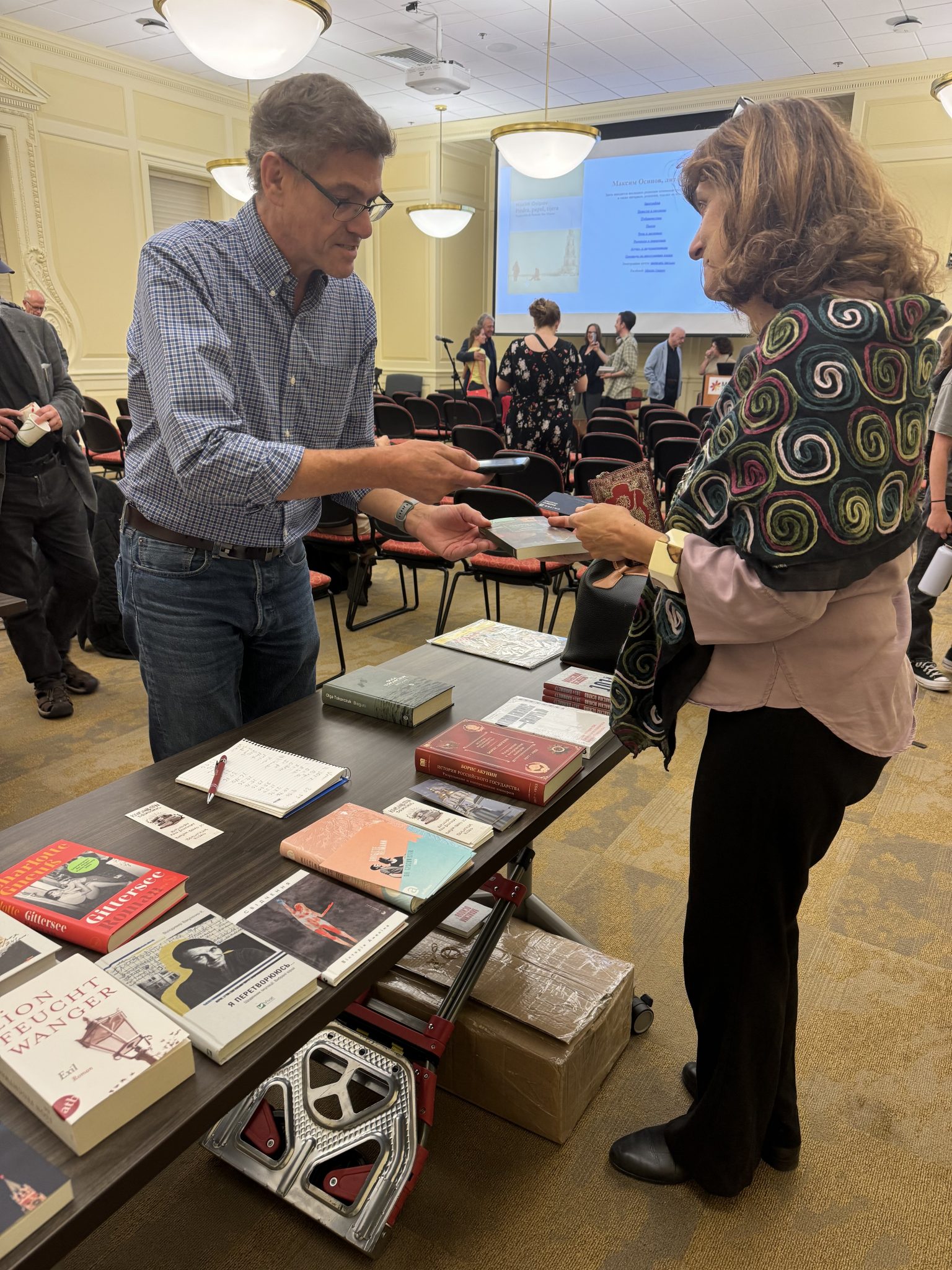By Lena Lajoy
For The Diamondback
University of Maryland community members attended a panel Thursday featuring Russian writer Maxim Osipov for a discussion at McKeldin Library about his literary career and experiences.
The event was hosted by the university’s libraries and the Maya Brin Residency Program, which hosts Russian scholars, artists and cultural figures at this university. Osipov, this year’s Maya Brin Resident, left Russia after its full-scale invasion of Ukraine in February 2022.
Russian cultural theorist and Emory University professor Mikhail Epstein moderated the “Conversations With A Russian Author In Exile” event.
Since 2007, Osipov has written short fictional stories, essays and plays. His writing has been translated into 20 languages and he has won multiple literary awards for his work.
After Russia’s offensive in Ukraine, Osipov wrote about his experiences about leaving the country for The Atlantic magazine, he said. Osipov also said he started a publication where he shares writing, poetry and other forms of literature from writers around the world.
[Pulitzer Prize-winning journalist commends student protests at UMD event supporting Gaza]
Despite leaving Russia, Osipov emphasized that his cultural identity has not changed.
“I have no other choice than call myself Russian writer, obviously, because I write Russian,” Osipov said at the panel. “I think it’s a bit too late to believe that I ever become Dutch writer or English writer.”
During the event, Osipov read a short story he wrote called “Big Opportunities.” The story details the life of a girl who was saved by a cab driver after an encounter with police.
The main character’s story — which was based on his past experiences like his other works —was “really remarkable,” Osipov said.
Maria Sneed, a junior biology major at Howard University, attended the event for her Russian studies class.
[University Senate discusses belonging survey, new biostatistics graduate degree programs]
Sneed said the event was “really interesting” because she did not have much knowledge about Russian literature. Learning Osipov’s perspectives on issues such as immigration was insightful, she added.
“I always do like to learn about different cultures,” Sneed said. “It was cool for me to hear that he is inspired by other writers from the past, like [Anton] Chekhov and [Fyodor] Dostoevsky.”
For Elizaveta Demianova, a senior biology major at this university, the panel made her feel more at home. Demianova, who is Russian, said listening to Osipov’s Russian verse during the event made her feel “cozy and warm.”
“I miss listening to lectures in Russia and because he read his own story in Russian verse, that was very nice for me,” Demianova said.



